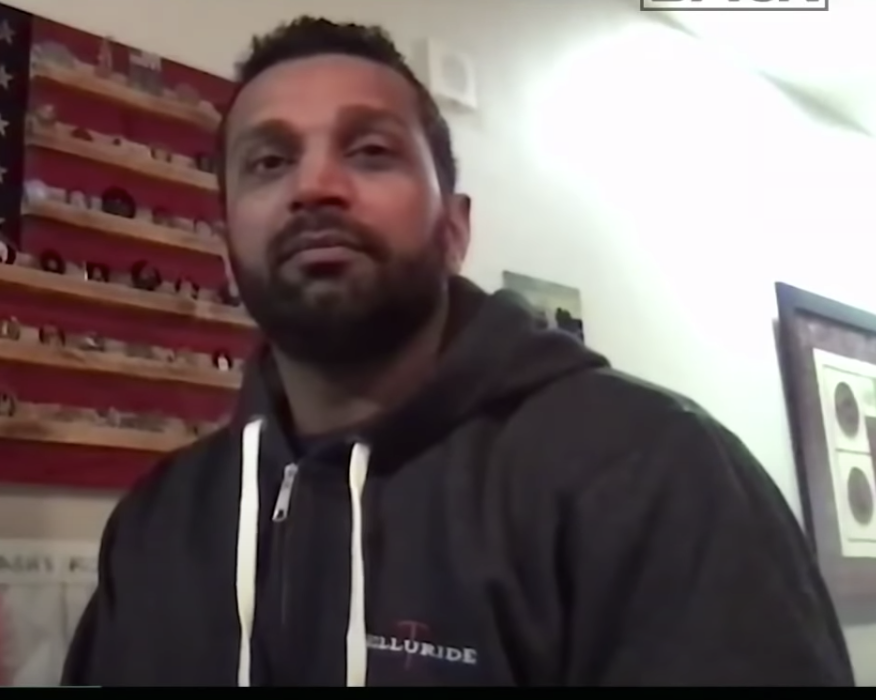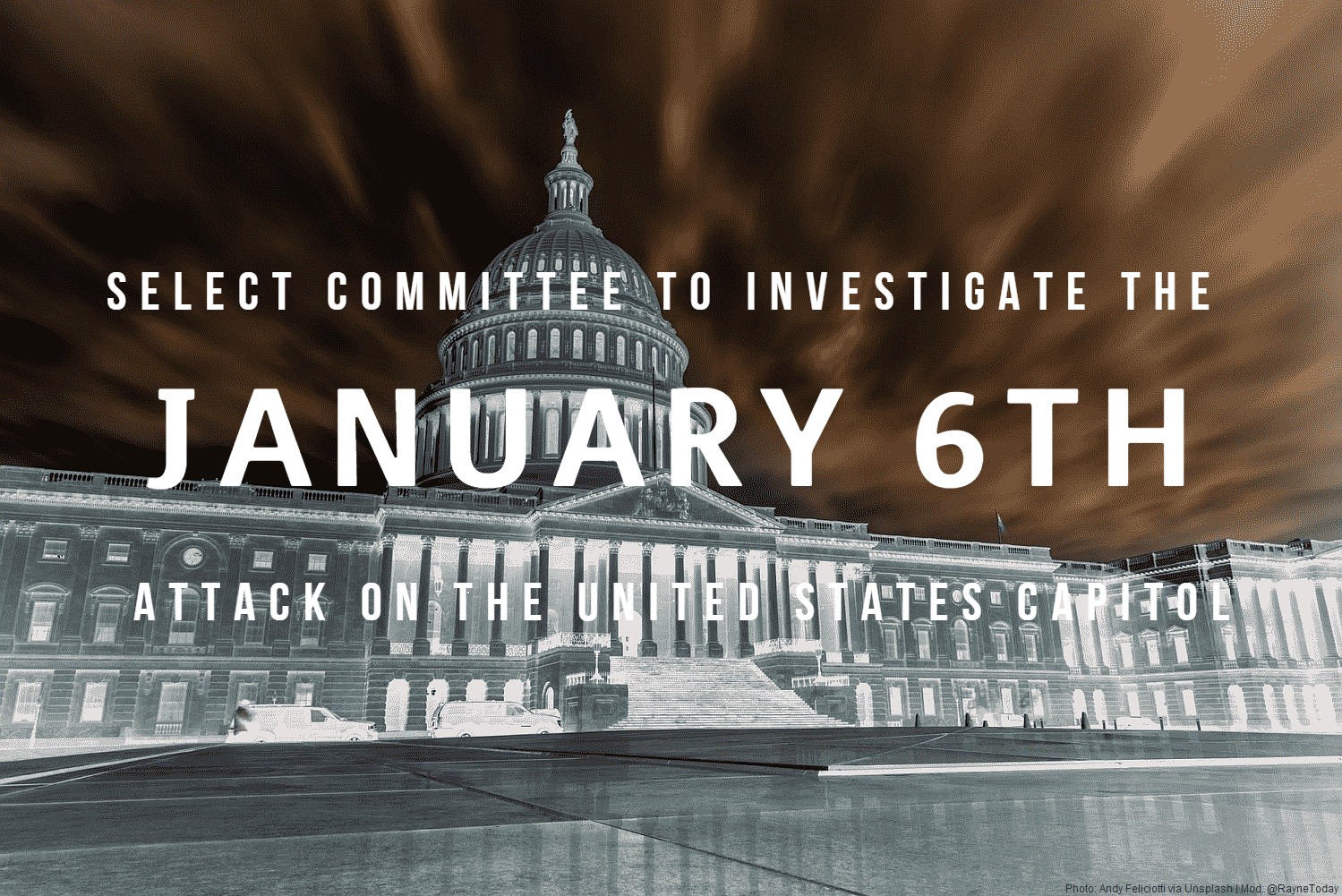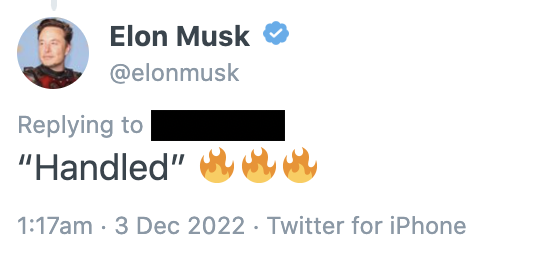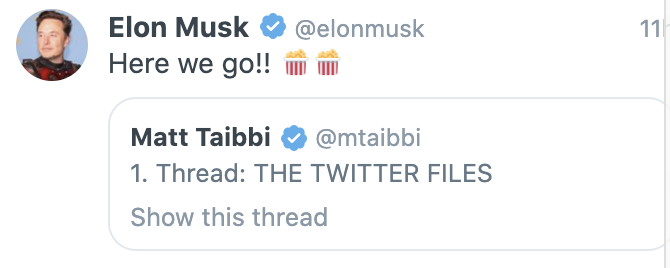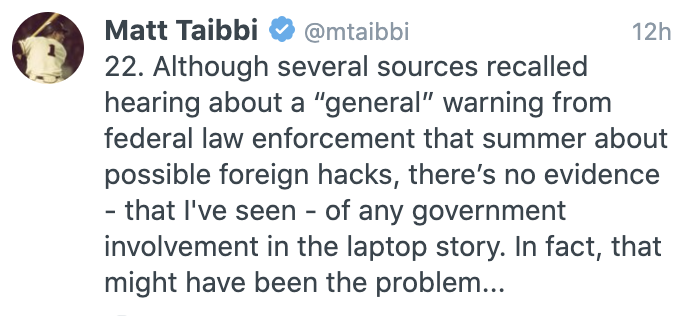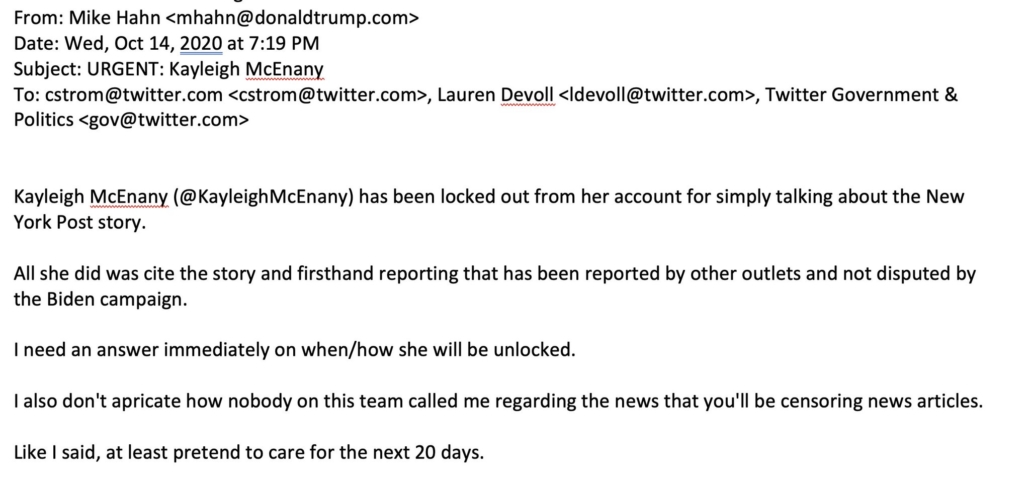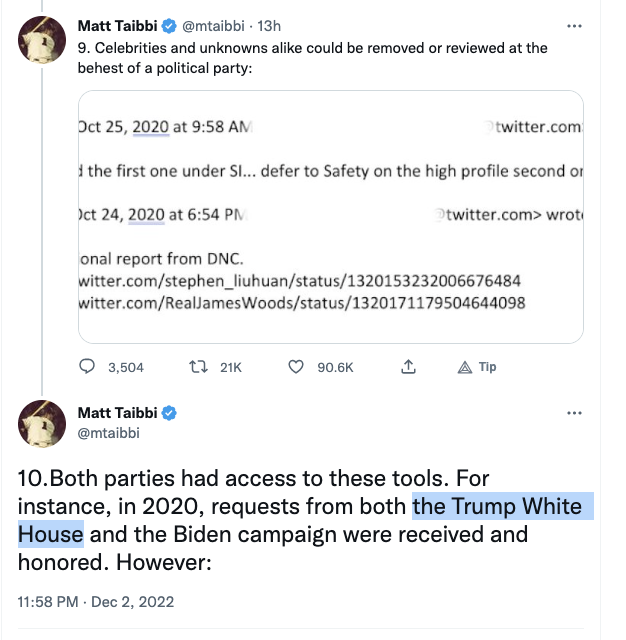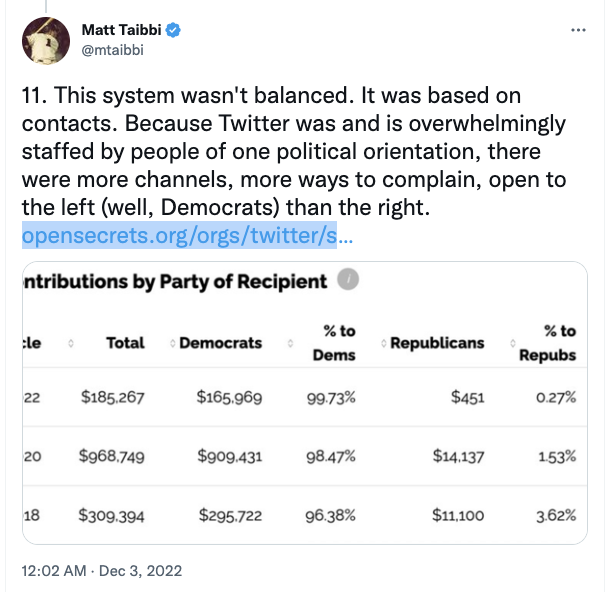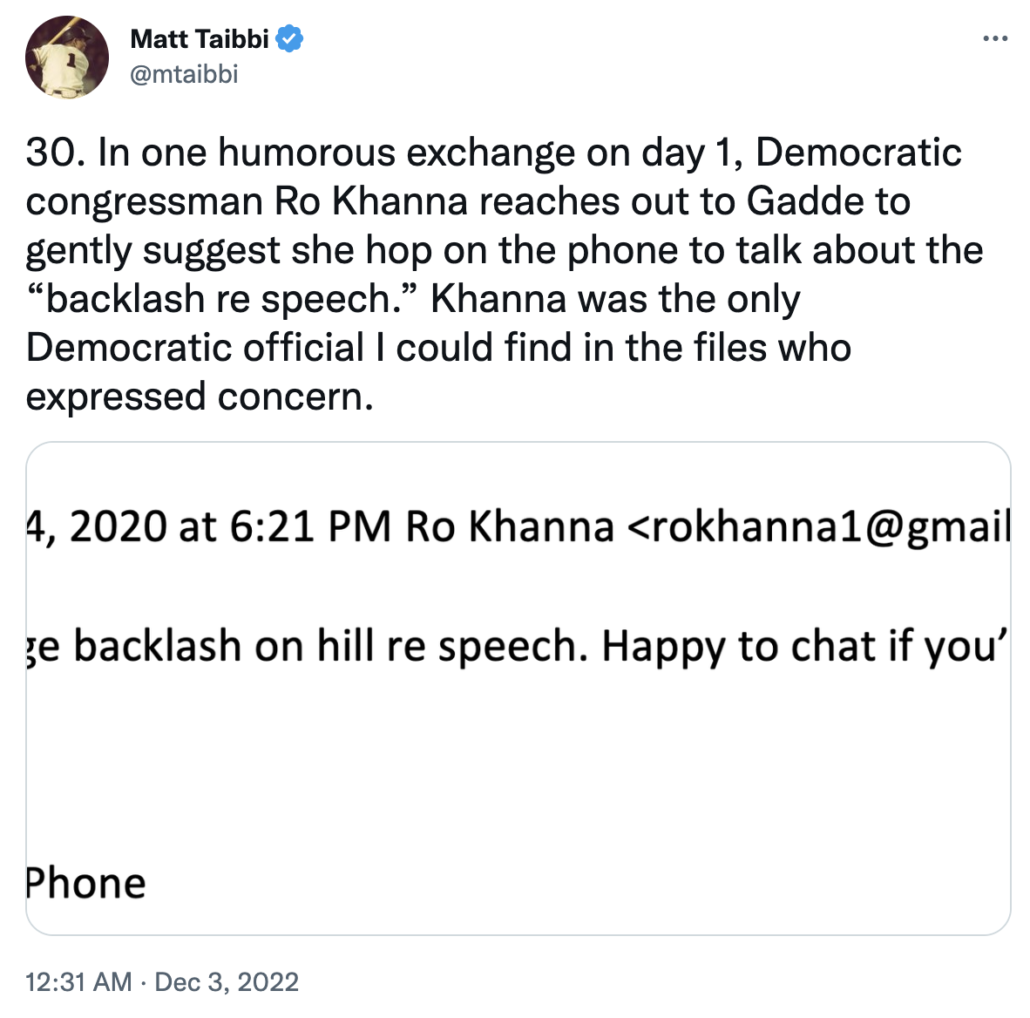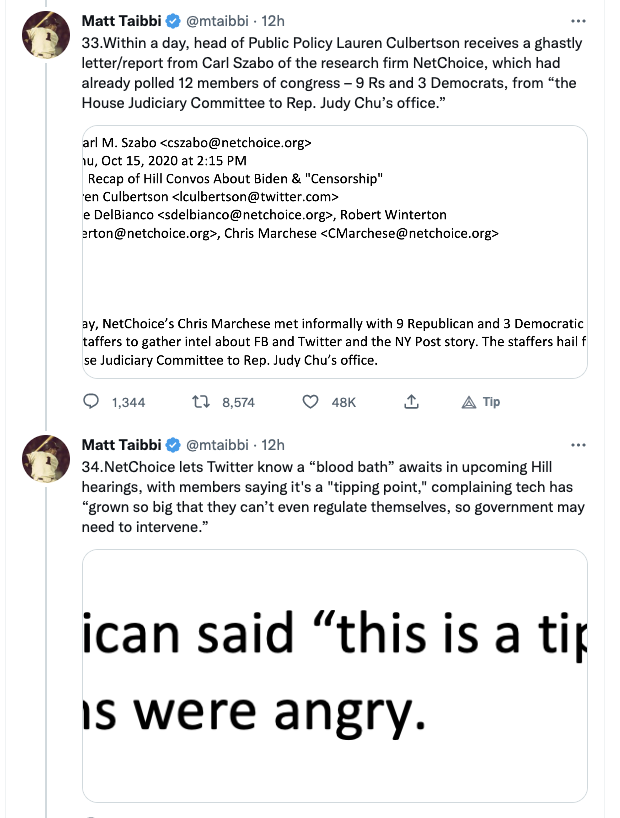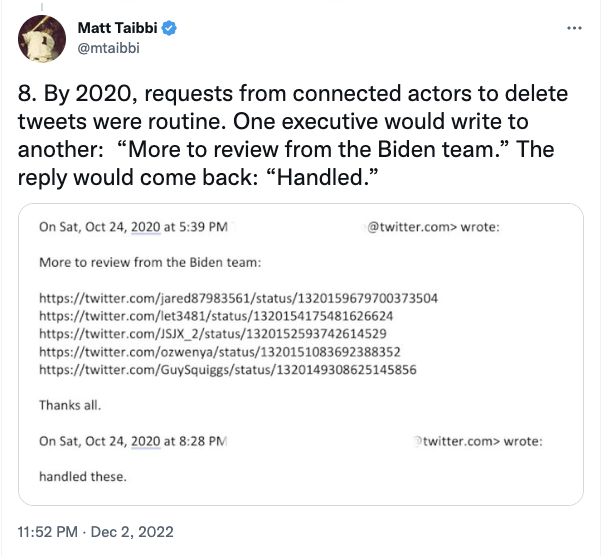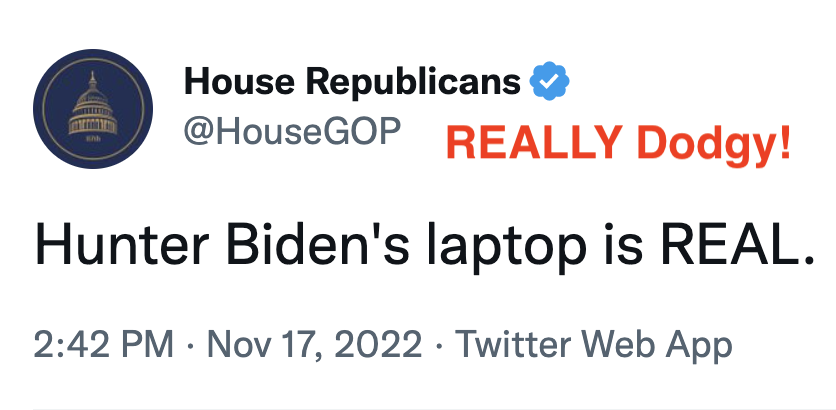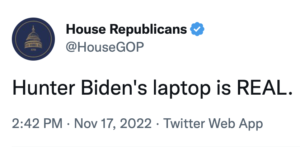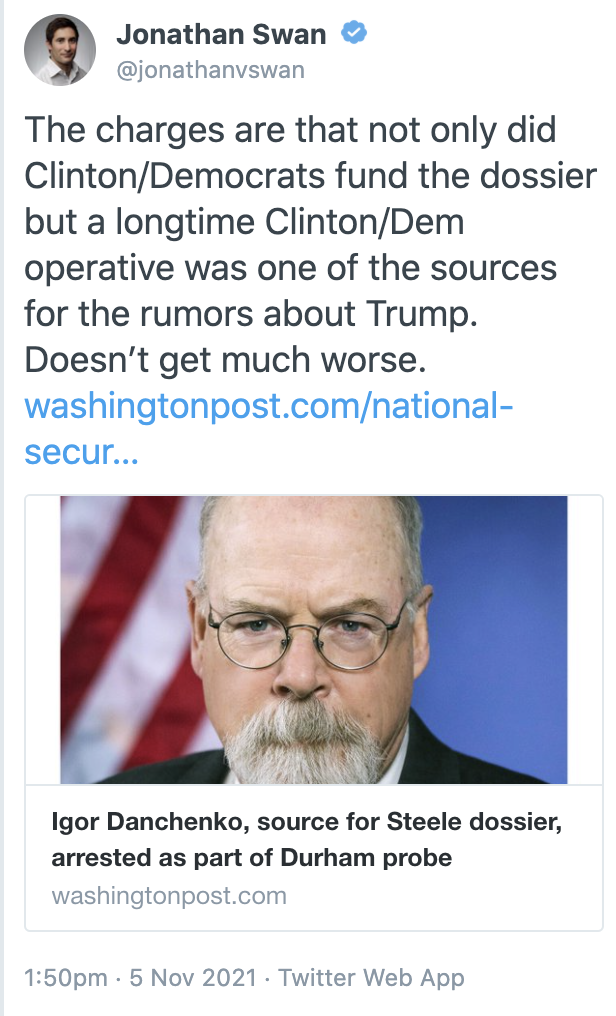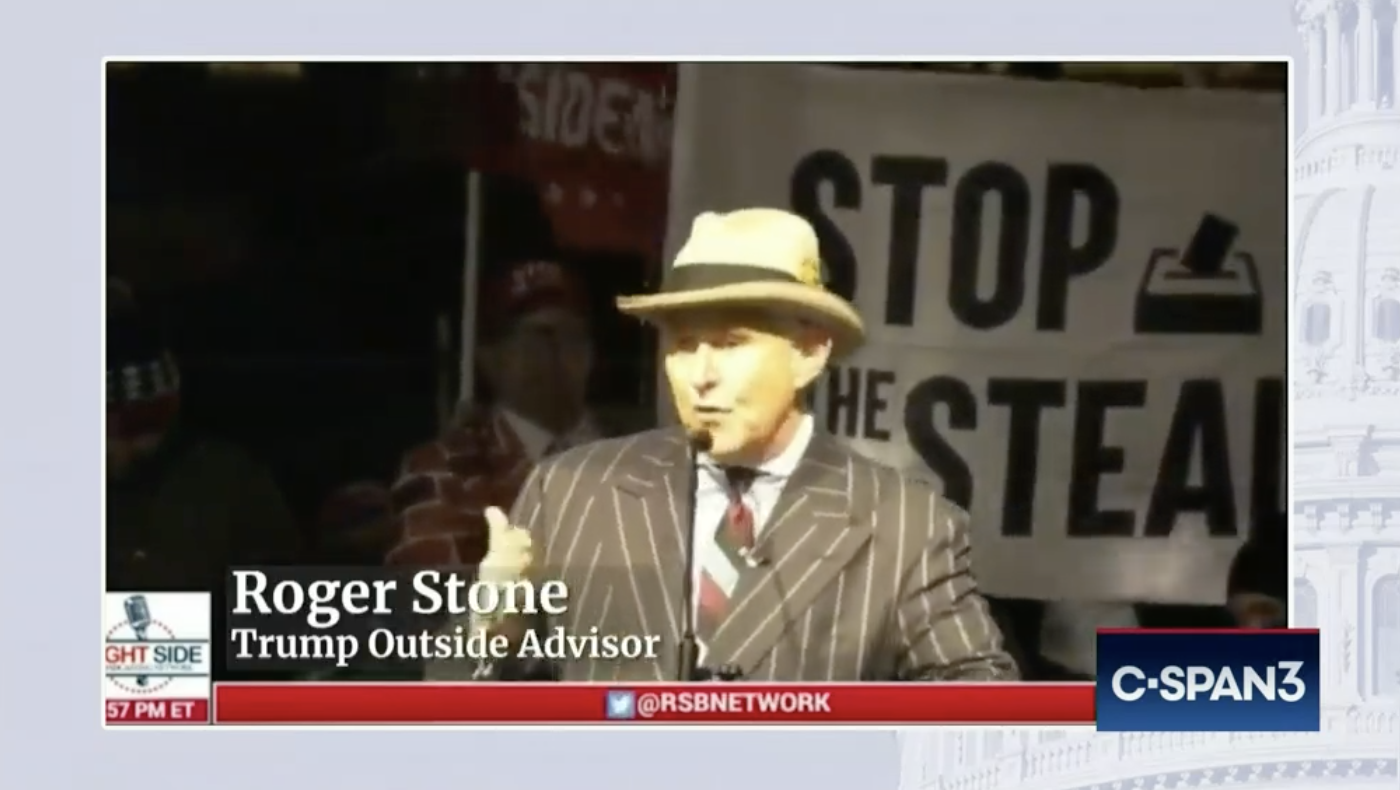My Twitter feed continues to be inundated by a bunch of experts on the latest talking point telling me why Joe Biden violated the law.
He may have. We don’t know the circumstances surrounding the documents found at his home. Based on what we know, it’s far less likely that Biden broke the law than Trump. But we don’t know.
Virtually all those parroting the latest talking point are misunderstanding the likely law in question — 18 USC 793e, the same law in question with Trump — and how classification works with a former President or Vice President.
Maybe I’ll get into that at more length in days ahead, but for now, I wanted to lay out what Trump, in the voice of his lawyer Evan Corcoran, says about whether Biden could be charged.
Corcoran addressed many of the questions my Twitter experts have shared in a letter sent to Jay Bratt, DOJ’s head of counterintelligence, last May.
First, Trump — in the voice of Corcoran — says if a former President (a Vice President is also a Constitutional Officer) has voluntarily returned documents to the Archives, there should be no leaks about it.
There have been public reports about an investigation by DOJ into Presidential Records purportedly marked as classified among materials that were once in the White House and unknowingly included among the boxes brought to Mar-a-Lago by the movers. It is important to emphasize that when a request was made for the documents by the National Archives and Records Administration (NARA), President Trump readily and voluntarily agreed to their transfer to NARA. The communications regarding the transfer of boxes to NARA were friendly, open, and straightforward. President Trump voluntarily ordered that the boxes be provided to NARA. No legal objection was asserted about the transfer. No concerns were raised about the contents of the boxes. It was a voluntary and open process. Unfortunately, the good faith demonstrated by President Trump was not matched once the boxes arrived at NARA. Leaks followed. And, once DOJ got involved, the leaks continued. Leaks about any investigation are concerning. Leaks about an investigation that involve the residence of a former President who is still active on the national political scene are particularly troubling.
So Trump, in the voice of Corcoran, should be outraged that CBS broke this story before the White House or Attorney General revealed it.
Corcoran says that those vested with constitutionally-based authority to classify and declassify documents have unfettered authority to declassify documents, an argument that Trump still pretends he hasn’t waived both before at least three courts, SDFL, the 11th Circuit, and SCOTUS.
(1) A President Has Absolute Authority To Declassify Documents.
Under the U.S. Constitution, the President is vested with the highest level of authority when it comes to the classification and declassification of documents. See U.S. Const., Art. II, § 2 (“The President [is] Commander in Chief of the Army and Navy of the United States[.]”). His constitutionally-based authority regarding the classification and declassification of documents is unfettered. See Navy v. Egan, 484 U.S. 518, 527 (1988) (“[The President’s] authority to classify and control access to information bearing on national security … flows primarily from this constitutional investment of power in the President and exists quite apart from any explicit congressional grant.”).
Now, in reality, the authority of the President is not entirely unfettered. As we discussed last fall, nuclear documents require additional people to declassify.
But here’s the thing: There’s good reason to believe that the Vice President has the same authority to declassify documents that the President does.
To the extent that classification is constitutionally tied to Article II authority, it is governed by Executive Order. The Executive Order that governed classification for the entirety of the Trump Administration, and still governs classification, treats the Vice President on par with the President. The EO that governs classified information gives the Vice President the same original classification authority it gives the President, which is where the authority to declassify comes from.
(a) The authority to classify information originally may be exercised only by:
(1) the President and the Vice President;
The language on post-tenure access (which Trump later invoked in arguments before the 11th Circuit) also applies to the Vice President in the same way as the President.
(a) The requirement in section 4.1(a)(3) of this order that access to classified information may be granted only to individuals who have a need-to-know the information may be waived for persons who:
[snip]
(3) served as President or Vice President.
(b) Waivers under this section may be granted only if the agency head or senior agency official of the originating agency:
(1) determines in writing that access is consistent with the interest of the national security;
(2) takes appropriate steps to protect classified information from unauthorized disclosure or compromise, and ensures that the information is safeguarded in a manner consistent with this order; and
(3) limits the access granted to former Presidential appointees or designees and Vice Presidential appointees or designees to items that the person originated, reviewed, signed, or received while serving as a Presidential or Vice Presidential appointee or designee.
Biden could access stuff from when he was Vice President, but he’d have to do so at the Archives and get a waiver first (a waiver that Biden had after his term but Trump, because of a decision by Biden, did not).
Now, to be clear, none of this has been tested. Much of this language is a legacy of changes in a prior EO that Dick Cheney oversaw in March 2003, which were key in the Valerie Plame investigation.
Some of that is covered in this post I did in 2017, in which I asserted that Mike Pence had declassification authority.
But the fact of the matter is that Joe Biden could say, if he were ever charged, that his understanding is that his authority to classify and declassify as Vice President was the same as the President’s, and over the entire four years of the Trump Administration, Trump did nothing with his unfettered authority to change that (nor has Biden since).
In reality, Trump didn’t declassify these documents, nor did Biden. Trump has now waived his opportunity to claim he declassified these documents legally repeatedly. (Biden could have legally declassified them when he found them; instead he returned them to the Archives.)
But there’s good reason to believe that Corcoran’s arguments about Trump — for the little they’re worth — would apply equally to Biden as to Trump, thanks, in part, to Dick Cheney.
How about them apples, huh?
By far the most interesting argument Corcoran makes, though, is that the statute that most Twitter experts think is at issue, 18 USC 1924, cannot apply to the President, because the President — like the Vice President — is not an “officer” appointed by the President.
(2) Presidential Actions Involving Classified Documents Are Not Subject To Criminal Sanction.
Any attempt to impose criminal liability on a President or former President that involves his actions with respect to documents marked classified would implicate grave constitutional separation-of-powers issues. Beyond that, the primary criminal statute that governs the unauthorized removal and retention of classified documents or material does not apply to the President. That statute provides, in pertinent part, as follows:
Whoever, being an officer, employee, contractor, or consultant of the United States, and, by virtue of his office, employment, position, or contract, becomes possessed of documents or materials containing classified information of the United States, knowingly removes such documents or materials without authority and with the intent to retain such documents or materials at an unauthorized location shall be fined under this title or imprisoned for not more than five years, or both. 18 U.S.C. § 1924(a).
An element of this offense, which the government must prove beyond a reasonable doubt, is that the accused is “an officer, employee, contractor, or consultant of the United States.” The President is none of these. See Free Enter. Fund v. Pub. Co. Acct. Oversight Bd., 561 U.S. 477, 497-98 (2010) (citing U.S. Const., Art. II,§ 2, cl. 2) (“The people do not vote for the ‘Officers of the United States.”‘); see also Melcher v. Fed. Open Mkt. Comm., 644 F. Supp. 510, 518-19 (D.D.C. 1986), aff’d, 836 F.2d 561 (D.C. Cir. 1987) (“[a]n officer of the United States can only be appointed by the President, by and with the advice and consent of the Senate, or by a court of law, or the head of a department. A person who does not derive his position from one of these sources is not an officer of the United States in the sense of the Constitution.”). Thus, the statute does not apply to acts by a President. [my emphasis]
Corcoran made what could be a grave error with this legal analysis, which I’ll get to, but it’s not necessarily in his read about Constitutional officers.
In fact, DOJ seems to agree with Corcoran that Trump’s actions — taking classified documents home at the end of his term and keeping them — are not covered by this law. It was not among the crimes for which they had demonstrated probable cause on Trump’s search warrant affidavit.
It may be DOJ believes that because they agree with Corcoran, that Constitutional Officers who are elected directly by voters are not subject to this law.
It may also be that they believe that because it is routine for Presidents and Vice Presidents, when leaving office, to remove their papers from their official residences and offices and then sort through the stuff they have to send to the Archives. A CNN report describes that Biden, like Trump, didn’t wrap up his office until the last minute (though for different reasons — Trump didn’t because he was still trying to cling to power, whereas Biden didn’t because he was still working). The result was the same, though: the process was rushed and disorderly.
That is, it is possible that the removal of documents at the end of an Administration is not, per se, considered criminal because of how White Houses transition.
Whatever it is, there is nothing about the known fact set about Biden that would make this law apply to Biden if it did not with Trump. Both are believed to have retained stuff they took with them when they left their offices in a hurry.
If 18 USC 1924 cannot apply to Trump, like Evan Corcoran said, then it cannot apply to Biden.
I said, above, that Corcoran may have made a grave error in his analysis. That’s because he didn’t consider whether 18 USC 793, the law we know is under investigation, could apply to a former President (or Vice President). And that appears to have led him to give Trump really bad advice, allowing him to refuse to give back classified documents when asked.
That is a crime.
Taking classified documents unknowingly is probably not a crime, especially for a President or Vice President. Refusing to give them back may well be. That’s the question before Jack Smith, as well as the obstruction question. That’s probably the question before Robert Hur.
How about them apples, huh?
There’s one more interesting thing Corcoran said in his letter. He demanded that DOJ adhere to the White House contact policies that were routinely violated under the Trump Administration.
(3) DOJ Must Be Insulated From Political Influence. According to the Inspector General of DOJ, one of the top challenges facing the Department is the public perception that DOJ is influenced by politics. The report found that “[o]ne important strategy that can build public trust in the Department is to ensure adherence to policies and procedures designed to protect DOJ from accusations of political influence or partial application of the law.” See https://oig.justice.gov/reports/top-management-and-performance-challengesfacing-depatiment-justice-2021 (last visited May 25, 2022). We request that DOJ adhere to longstanding policies and procedures regarding communications between DOJ and the White House regarding pending investigative matters which are designed to prevent political influence in DOJ decision-making.
He’s not wrong that those contact policies should be upheld. And whatever else you think about Merrick Garland’s decision to appoint for John Lausch and then Robert Hur to investigate this, the necessity to uphold contact policies, to which Garland has (as far as is public) adhered to rigorously, is a really good reason to appoint a Special Counsel (and, for that matter, for the White House to be very reserved about its public comments). Trump’s favorite way of violating the contact policy was to Tweet something that would, fairly routinely, be followed almost immediately by DOJ taking action, including on criminal cases (most notably with Roger Stone’s).
Indeed, Biden’s people have said that one reason they have not issued more public comments was in an attempt to avoid even appearing to influence the process.
They should revert to that stance, in my opinion, and point to Evan Corcoran’s letter as authority to do so.
Evan Corcoran said a lot of things. He’s not a national security expert though, so if I were Biden, I wouldn’t rely on it.
But we should be able to rely on his argument that Trump doesn’t think that Biden should be charged, at least not with 18 USC 1924.


